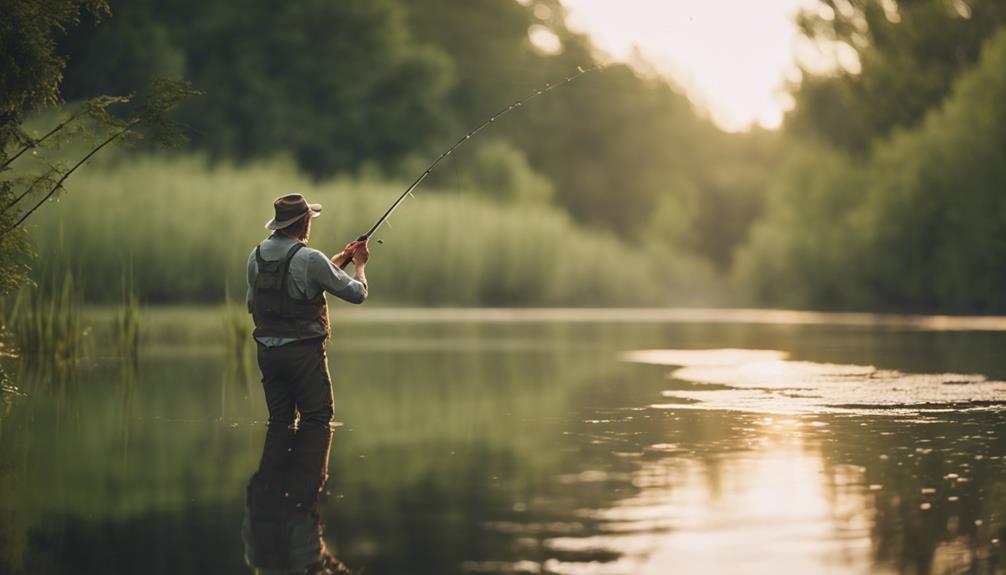Fishing is not just a hobby; it’s a way to connect with nature, spend time with family, and even provide food for the table. However, before you cast your line, it’s essential to understand the costs associated with obtaining a fishing license. In this article, we will explore the various factors that determine how much fishing licenses cost, what to consider before purchasing one, and where to buy your fishing license.
Understanding Fishing Licenses: What They Are and Why You Need One
Fishing licenses are legal documents that grant individuals the permission to fish in specific bodies of water. The primary purpose of a fishing license is to regulate fishing activities and ensure sustainable fish populations by monitoring the number of anglers on the water. Each state or region has its own set of regulations regarding fishing licenses, including age requirements, types of fishing allowed, and fishing seasons. It’s crucial to abide by these regulations to avoid hefty fines and contribute to conservation efforts.
Factors Influencing the Cost of Fishing Licenses
When asking, “how much are fishing licenses?” the answer can vary greatly depending on several factors. These include:
1. Location: Different states or regions have specific pricing structures for fishing licenses. Some areas may offer discounts or free licenses for seniors, veterans, or children.
2. Type of Fishing: Freshwater fishing licenses generally cost less than saltwater licenses. Additionally, specialty licenses for certain types of fishing, such as fly fishing or ice fishing, may also have different pricing.
3. Duration: Fishing licenses can be purchased for various durations, including daily, weekly, monthly, or annually. A one-day license will cost significantly less than an annual license, but if you plan to fish frequently, the annual license may be more cost-effective.
4. Residency Status: Residents often pay lower fees than non-residents. States encourage local anglers to fish in their waters, resulting in reduced license costs for residents.
Average Costs of Fishing Licenses in the United States
To give you a clearer idea of how much fishing licenses typically cost, here’s a breakdown of average prices across the United States. Please note that these are approximate figures and can vary widely based on the factors mentioned above.
– Freshwater Fishing License: Generally ranges from $15 to $50 per year for residents. Non-residents can expect to pay between $30 to $100.
– Saltwater Fishing License: The average cost for residents is around $20 to $60 annually, while non-residents may pay between $40 to $120.
– Specialty Licenses: These can range from $10 for a one-day license to upwards of $50 for multi-species permits.
– Discounted Licenses: Senior citizens often receive a discount, with many states offering licenses for as low as $5. Some states also provide free licenses for active military personnel and veterans.
Where to Purchase Fishing Licenses
Knowing how much fishing licenses cost is essential, but you also need to know where to buy them. There are several convenient options available:
1. Online: Most state wildlife agencies allow you to purchase fishing licenses online. This is often the most convenient option, letting you buy your license from the comfort of your home.
2. Retail Locations: Sporting goods stores, bait shops, and other authorized retailers typically sell fishing licenses. This option is great if you prefer to speak with someone or need fishing gear at the same time.
3. State Offices: You can also obtain a fishing license directly from state wildlife offices. This is a good option for those who want more information about local fishing regulations and recommendations.
Fishing License Regulations: What You Need to Know
Before you head out to fish, it’s essential to familiarize yourself with local fishing regulations. Each state has its own rules regarding fishing seasons, limits on the number of fish you can catch, and specific areas where fishing is allowed. Not adhering to these regulations can lead to fines and legal repercussions.
Additionally, some regions might require special permits for certain types of fishing, such as fishing in national parks or protected areas. Always check the local wildlife agency’s website or contact them directly for up-to-date information on fishing regulations.
Benefits of Having a Fishing License
Obtaining a fishing license comes with several advantages beyond the legal permission to fish. These benefits include:
1. Conservation Support: The fees collected from fishing licenses often go directly into conservation efforts to maintain and restore fish populations and their habitats.
2. Access to Resources: A fishing license often provides access to exclusive fishing spots that require a permit, enhancing your fishing experience.
3. Educational Opportunities: Many state agencies offer educational resources and workshops for licensed anglers, helping you improve your fishing skills and knowledge.
4. Community Engagement: Being a licensed angler often opens doors to local fishing events, tournaments, and clubs, allowing you to connect with fellow fishing enthusiasts.
Conclusion: The Importance of Knowing How Much Fishing Licenses Cost
In conclusion, understanding how much fishing licenses cost is crucial for anyone looking to enjoy this beloved pastime. The price can vary based on various factors, including location, type of fishing, and duration. Regardless of the cost, obtaining a fishing license is an essential step in ensuring sustainable fishing practices and contributing to the conservation of aquatic ecosystems.
Whether you’re a seasoned angler or a beginner, investing in a fishing license is a small price to pay for the joy and adventure that fishing brings. Make sure to check your local regulations and get your license before heading out to enjoy the great outdoors. Happy fishing!
